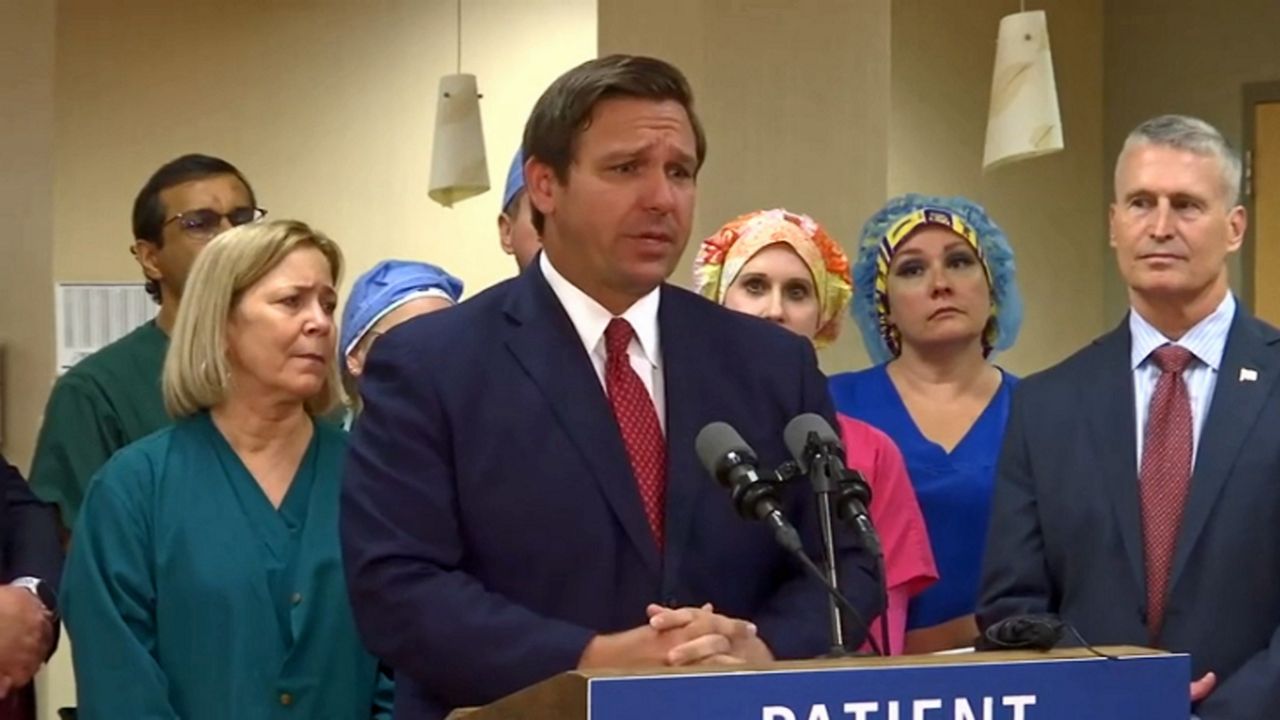FLORIDA — Gov. Ron DeSantis has denied a request by a coalition of more than 30 groups to shut down a state database designed to track warning signs in students that might lead to another school shooting.
- DeSantis denies request to end "red-flag" database of students
- Database used to track potential warning signs in students
- Coalition of 33 groups says database could stigmatize, blame kids
The "Florida Schools Safety Portal" is a database designed to track students' mental health records to social media posts — things that might indicate a school shooting could be in the making.
But a coalition of 33 groups, including the American Civil Liberties Union, Mental Health America, and the League of Women Voters, are calling it an overreach. The groups have asked Gov. Ron DeSantis to immediately end the database, warning it "could be used to stigmatize and blame children who have been victims of bullying or whose only 'risk' factor is their disability."
"We have become very hyper-aware in our state, especially of these types of issues regarding our students because of what happened at Marjory Stoneman Douglas High School. But we have to be very careful not to overreact. We have to be very careful not to invade the privacy of our students," said Patricia Brigham, the president of the Florida League of Women Voters.
State lawmakers created it as a tool to prevent another Parkland shooting.
But DeSantis says it's being mischaracterized. In a statement, his office said the database is "a tool for threat assessment teams to evaluate the seriousness of individual cases and is not being used to label students as potential threats."
The governor has denied the request to block the database, saying it's essential for following up on threats that could put Florida's schools at risk, and that it won't be used to spy on students who don't pose a threat.
Critics say time will tell if what kids do online won't lead to discrimination.
The coalition is also concerned about the database sparking a "chilling effect" on free speech by pressuring students to watch what they say in cyberspace.



